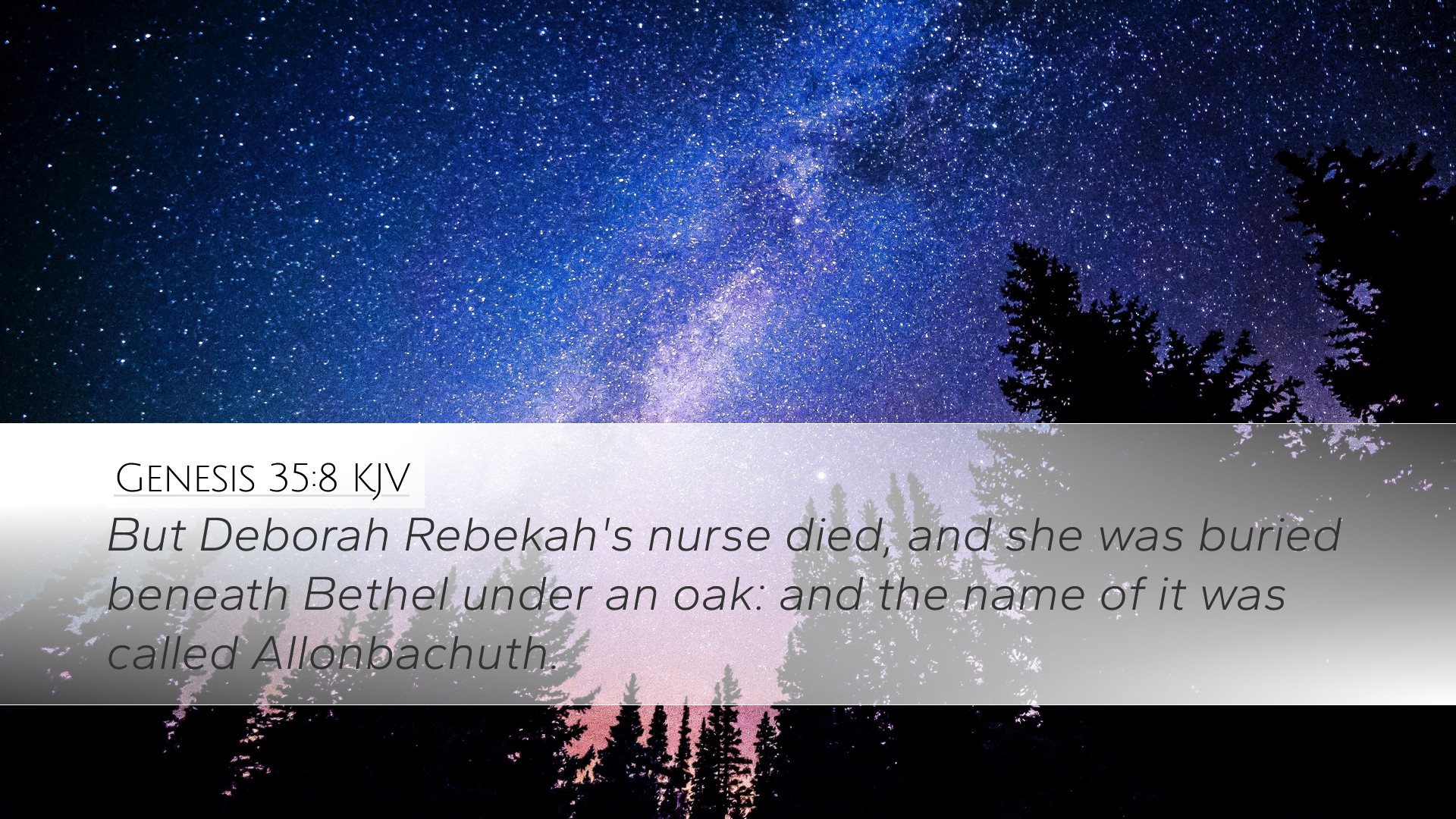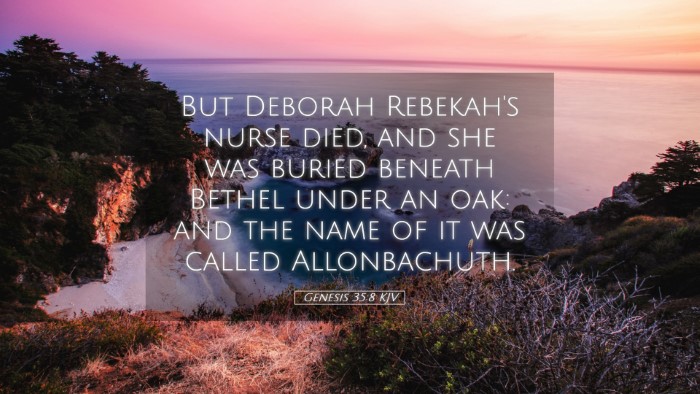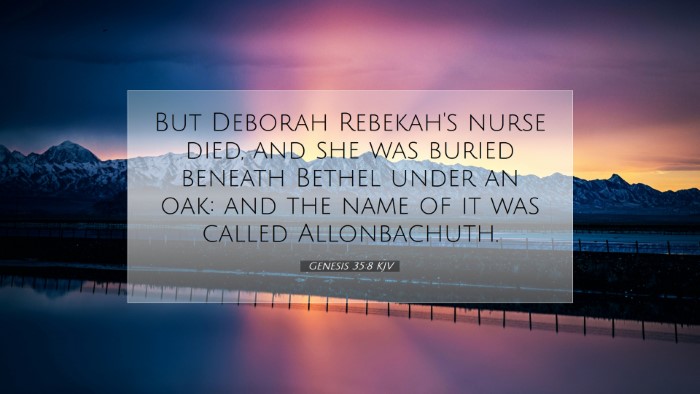Commentary on Genesis 35:8
Genesis 35:8 states, "But Deborah, Rebekah's nurse, died, and she was buried under an oak below Bethel; so the name of it was called Allon Bacuth." This passage, though seemingly modest in its content, holds significant theological importance and provides insight into the lives and relationships of the patriarchal figures.
Contextual Background
The death of Deborah, Rebekah's nurse, draws attention to the personal connections within the biblical narrative and establishes a lineage of relationships. As Matthew Henry observes, Deborah had been a loyal servant and companion to Rebekah, particularly during her formative years and upon her travel to meet Isaac. This connection emphasizes the importance of kinship and community in the biblical text.
Symbolism of Deborah
Deborah can be seen as a figure representing nurturing and support. Albert Barnes notes that her role was pivotal in the life of Jacob's family, underscoring the theme of maternal influence that extends not just from mothers to children, but to others within the household. Her death signifies a loss not only of a servant but also of a motherly figure.
Location: The Oak Beneath Bethel
The choice of burial site under an oak tree carries symbolic weight. Adam Clarke remarks on the tradition of using trees as sacred spaces, highlighting their significance in the ancient Near Eastern cultures. Oaks are often associated with strength and stability, which adds a layer of honor to Deborah’s memory.
- Burial Customs: This passage reflects the common customs of biblical funerals and burials, showcasing communal grief.
- Geographical Importance: Bethel holds significant theological importance, being the site where Jacob had his dream of a ladder ascending to heaven (Genesis 28:10-22).
Theological Implications
The death of Deborah reminds readers of mortality and the universality of grief. The narrative could symbolize the transitional phases that Jacob and his family are undergoing as they return to the land of their forefathers. Both Matthew Henry and Albert Barnes emphasize the nature of life's impermanence, echoing the biblical theme of human fragility in the face of divine plans.
Legacy of Deborah
Deborah's legacy is reflected in the act of naming the place of her burial, Allon Bacuth, which means "oak of weeping." This act serves as a reminder of the importance of remembrance and mourning in the Jewish tradition. Mourning not only honors the deceased but also binds the community in empathy and shared memory.
Practical Reflection for Today
In contemporary contexts, this text serves as a meditation on the importance of nurturing relationships—whether familial, communal, or divine. It reminds today's readers that while life is transient, the impact of those we love endures beyond their physical presence.
- Encouragement of Community: Like Deborah, those who provide love and nurturing in our lives deserve acknowledgment and remembrance.
- Praise for Service: Reflect on the contributions of those who serve selflessly within our communities and churches.
Conclusion
Genesis 35:8 encapsulates a moment of loss and commemoration that reverberates throughout the narrative of Genesis. The reflections of scholars like Henry, Barnes, and Clarke guide us to appreciate the multi-layered implications of such passages. They foster a deeper understanding of historical context, familial relationships, and the broader theological themes of remembrance and community. As we delve into this verse, we are invited to reflect on our relationships and the legacies we leave behind.


